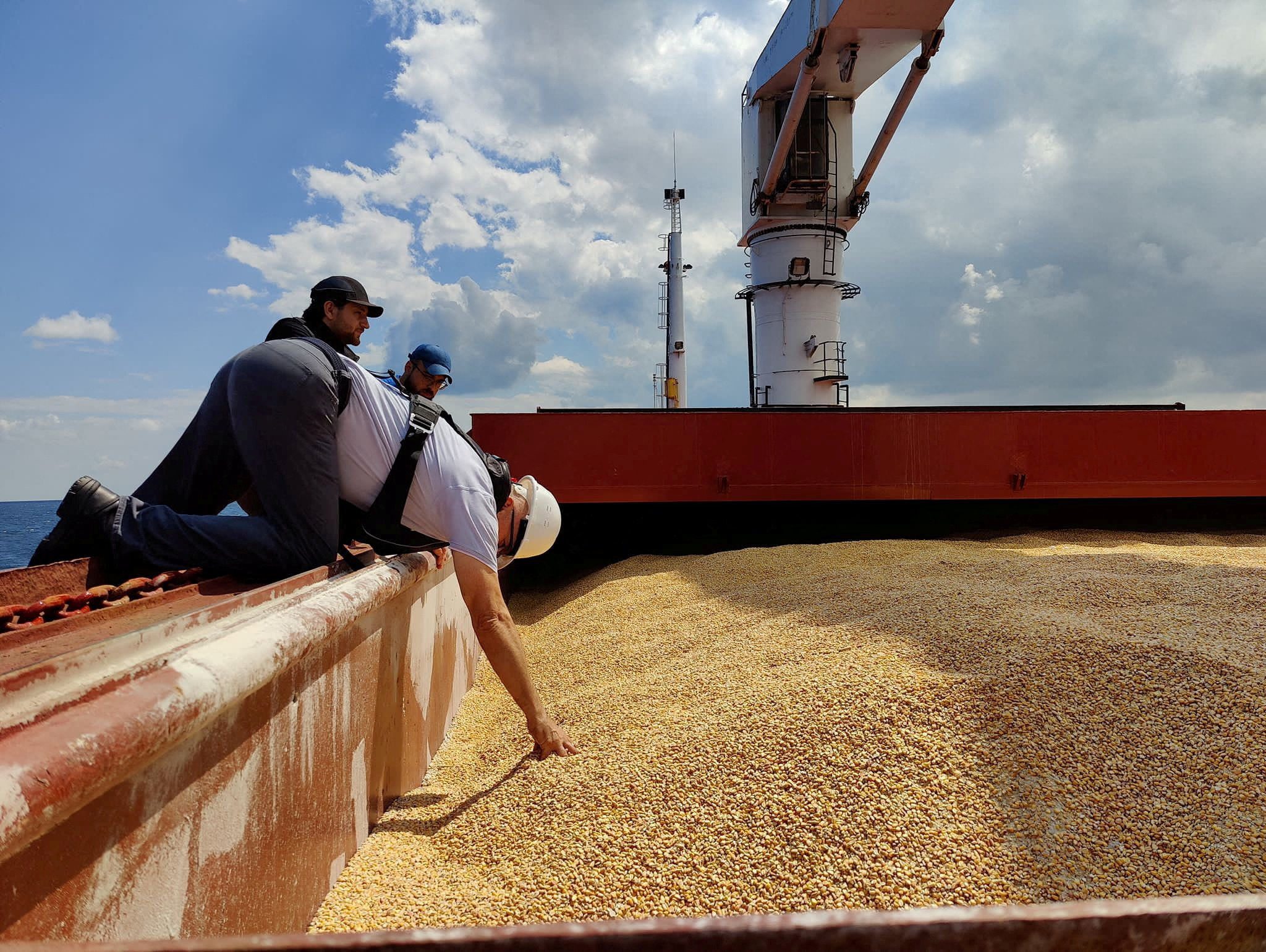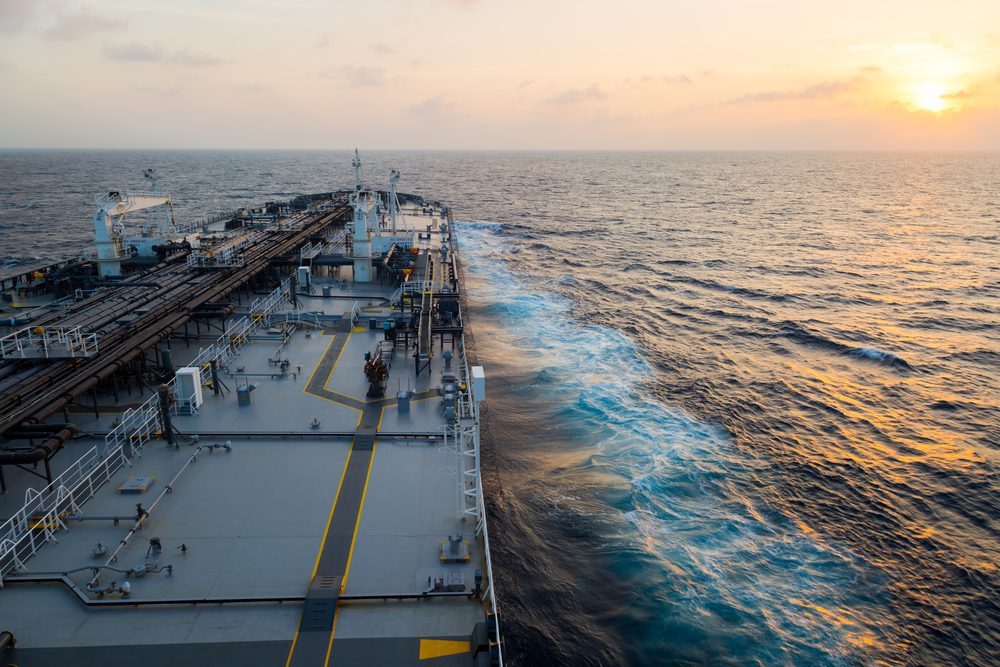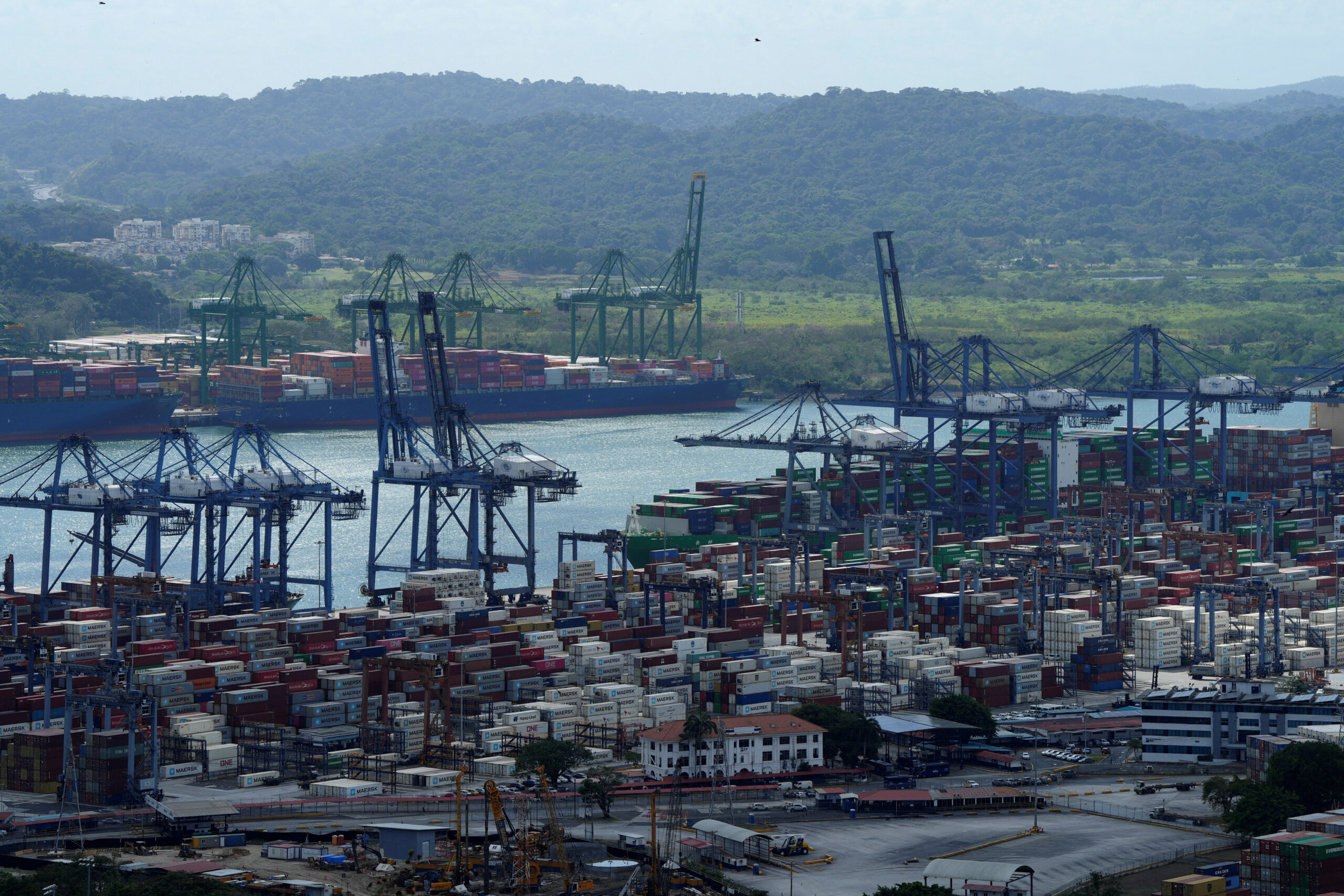By Kateryna Choursina and Áine Quinn (Bloomberg) —
From his post at the mouth of the Black Sea, Ukrainian ship inspector Ruslan Sakhautdinov has seen his Russian counterparts repeatedly slow the flow of his country’s grain abroad — from scrutinizing fuel gauges to crews’ personal belongings.
Last year’s landmark deal to reopen some Ukrainian ports for vital food exports included a requirement that joint teams from Ukraine, Russia, the United Nations and Turkey inspect each ship. The idea is to prevent unauthorized cargo or passengers from moving in and out.
But Ukrainian traders and authorities say that Russia is purposefully slowing the pace by pushing the bounds of that mandate and limiting personnel. Sakhautdinov said Russian team members end work by 3:30pm, which halts the day’s inspections. The number of crop-laden ships to clear the corridor in January fell to the lowest since its August launch.
The US has also cast blame on Russia for the slowdowns, while Moscow says the backlog is artificially created by Ukrainian companies.
Exports from Ukraine are vital to help feed the world’s hungry and reduce pressure on cost inflation. The grain corridor has already played an important role in shipping significant volumes, helping to lower global food prices from records hit in the wake of Russia’s invasion. But the delays are weighing on farmers’ incomes and raising costs for traders, so that growing and shipping Ukrainian crops becomes increasingly challenging.
“Procrastinations while checking the vessels happen on a daily basis as the Russian side exceeds its powers during inspections, which is outside the grain initiative framework,” Sakhautdinov said.
The volume of crops cleared on ships from Ukraine fell to 3.1 million tons in January, holding shy of its 5-million ton goal. Bad weather also stalled work for a few days at the Joint Coordination Centre in Istanbul, which facilitates the grain deal.
Since November, three inspection teams have been deployed, according to the United Nations, versus four or five in earlier periods. They cleared a daily average of 2.7 crop-laden vessels in January, down from 3.4 in December.
JCC procedures require ships and inspectors to verify a host of details, from cargo manifests to crew lists and reporting fuel-oil consumption.
The number of outbound vessels cleared in a day peaked at 46 on Oct. 31, when Russia briefly stepped back from the deal and ships were checked without its involvement.
Nibulon Ltd., a major Ukrainian crop trader, has shipped more than 400,000 tons through the corridor, but said the limitations mean exporters and producers are incurring significant losses.
In its experience, inspections can be canceled for anything from Russian examiners’ dissatisfaction with ship equipment to the nationality of crews. Discrepancies between fuel levels stated in documents and the actual amount on board — nearly impossible to predict ahead of time — can hold up ships, it said.
International merchant Archer-Daniels-Midland Co. also said the vessel inspections have become a bigger bottleneck recently, while it is managing through the process.
“Russians use various administrative pretenses to refuse to issue a permit to pass through the Bosphorus,” Andriy Vadaturskyy, chief executive of Nibulon, said by email. “Clients all over the world are forced to wait much longer, while consumers face shortages and higher prices.”
A queue of 114 ships was awaiting inspection or to join the initiative as of Feb. 1, according to the JCC. That compares to 96 at the end of December.
The UN on Jan. 18 urged all parties “to improve operational efficiencies” and reduce the backlog. Russia’s foreign ministry said the buildup is due to Ukrainian companies chartering vessels in violation of the agreed-upon rules and times for registration and participation.
Ukraine has sought to bolster volume by other means, like prioritizing larger vessels. It is also still shipping via rail and road routes, although those are lengthy and the influx of grain has sparked ire from eastern European farmers.
Its Black Sea crop exports peaked in October at about 4 million tons, UkrAgroConsult data show. The initiative is up for renewal in March and uncertainties over its longevity could also impact flows.
Dmitry Timotin at Inzernoexport GmbH Agency in Odesa makes arrangements for vessels’ calls to ports. One he worked with — the Akson Sara — waited nearly six weeks for inward clearance and another outward, before sailing to Egypt in December with Ukrainian corn. The delays meant the trader had to pay an extra $1 million to the shipowner for a cargo worth about $9 million, he estimates.
The trade challenges add to the hurdles for farmers, who historically ship two-thirds of their grain abroad. Growers are already grappling with blackouts and mined land, and exports are running 29% behind last season. The Ukrainian Grain Association forecasts this year’s harvest at half its pre-war level.
“The initiative should operate as it was envisioned, moving 5 million tons of food per month,” US Ambassador Linda Thomas-Greenfield said in a January speech at the UN security council. “The world’s hungry deserve nothing less.”
–With assistance from Tarso Veloso and Olesia Safronova.
© 2023 Bloomberg L.P.

 Join The Club
Join The Club











